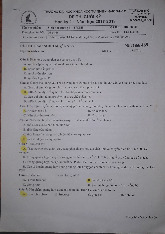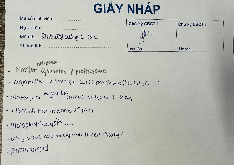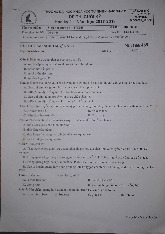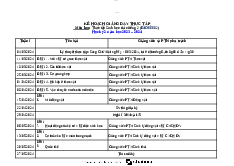Report tài liệu
Chia sẻ tài liệu
Explain how the antagonistic hormones insulin and glucagon regulate carbohydrate metabolism - Sinh đại cương | Trường Đại học Khoa học Tự nhiên, Đại học Quốc gia Thành phố Hồ Chí Minh
After a carbohydrate-rich meal, the rising level of blood glucose promotes Beta cells of the pancreas secreting the hormone insulin into the blood. Insulin triggers the uptake of glucose from the blood into body cells, and stimulates the liver to store glucose as glycogen. Tài liệu được sưu tầm giúp bạn tham khảo, ôn tập và đạt kết quả cao trong kì thi sắp tới. Mời bạn đọc đón xem !
Môn: Sinh đại cương 20 tài liệu
Trường: Trường Đại học Khoa học tự nhiên, Đại học Quốc gia Thành phố Hồ Chí Minh 1.1 K tài liệu
Tác giả:

Tài liệu khác của Trường Đại học Khoa học tự nhiên, Đại học Quốc gia Thành phố Hồ Chí Minh
Preview text:
Explain how the antagonistic hormones insulin and glucagon regulate carbohydrate metabolism.
- After a carbohydrate-rich meal, the rising level of blood glucose promotes Beta cells of the pancreas secreting the hormone insulin into the blood. Insulin triggers the uptake of glucose from the blood into body cells, and stimulates the liver to store glucose as glycogen.
- After fasting, when blood in the hepatic portal vein has a much lower glucose concentration, Alpha cells of the pancreas secrete the hormone glucagon into the blood. Glucagon stimulates the liver to break down glycogen, convert amino acids and glycerol to glucose, and release glucose into the blood.
Tài liệu liên quan:
-

Đề thi cuối học kỳ 1 năm học 2017-2018 môn Sinh học đại cương 1 | Trường Đại học Khoa học tự nhiên, Đại học Quốc gia Thành phố Hồ Chí Minh
21 11 -

Đề thi cuối HKI học phần Sinh học đại cương 1 năm 2024 - 2025 | Trường Đại học Khoa học tự nhiên, Đại học Quốc gia Thành phố Hồ Chí Minh
265 133 -

Đề thi cuối HKI học phần Sinh học đại cương 1 năm 2024 - 2025 | Trường Đại học Khoa học tự nhiên, Đại học Quốc gia Thành phố Hồ Chí Minh
531 266 -

Bài 5 Vận chuyển nước trong mạch mộc - Thực tập Sinh đại cương 2 | Trường Đại học Khoa học Tự nhiên, Đại học Quốc gia Thành phố Hồ Chí Minh
280 140 -

Kế hoạch giảng dạy - Thực tập Sinh đại cương 2 | Trường Đại học Khoa học Tự nhiên, Đại học Quốc gia Thành phố Hồ Chí Minh
243 122